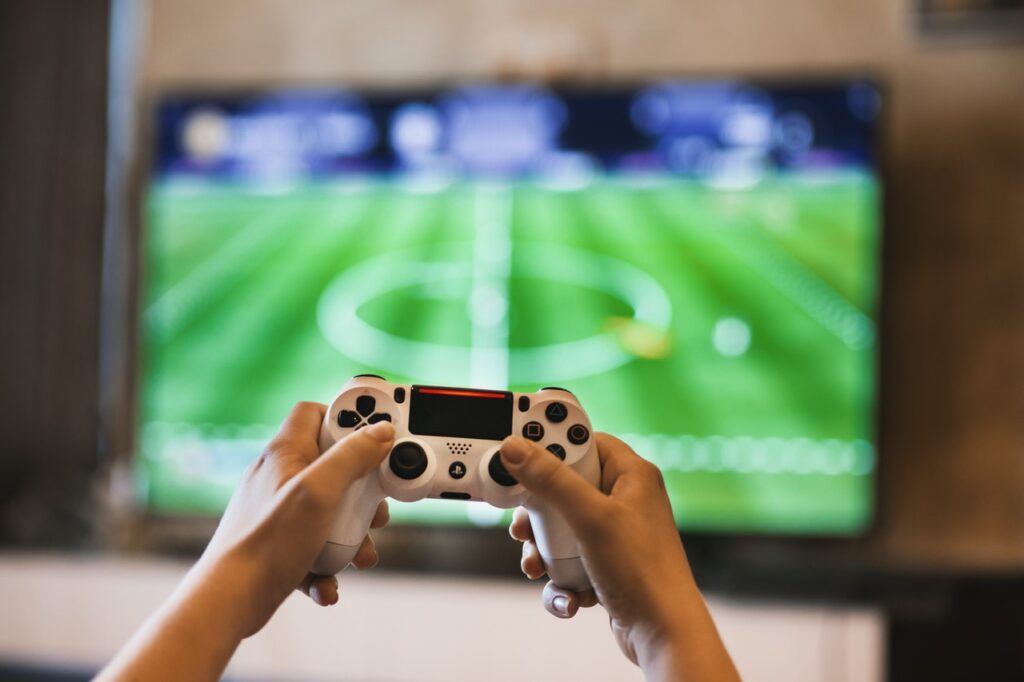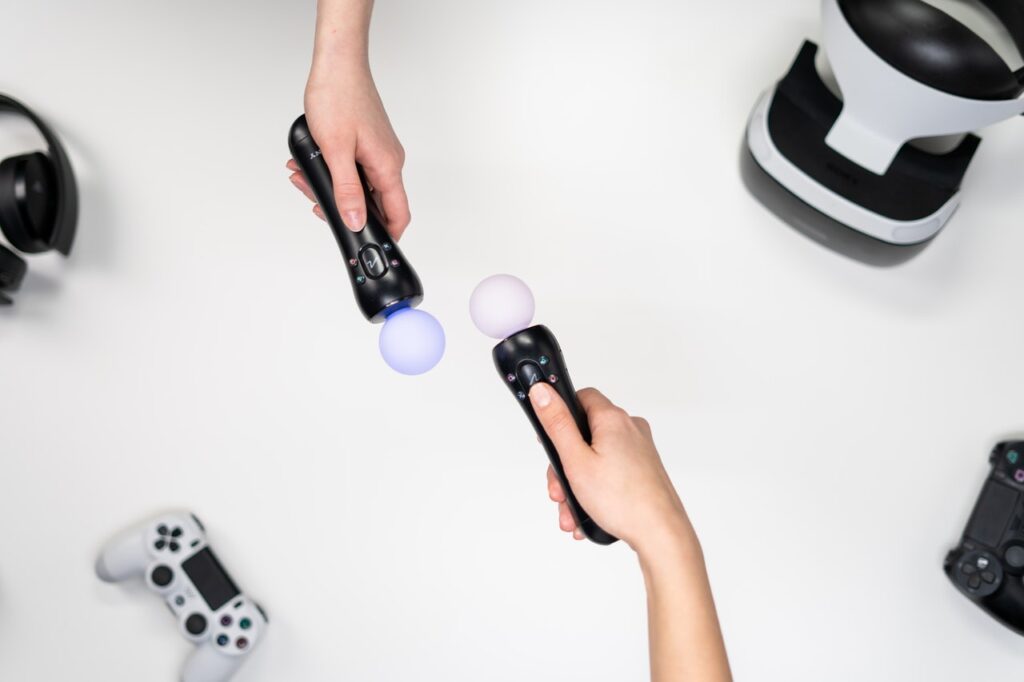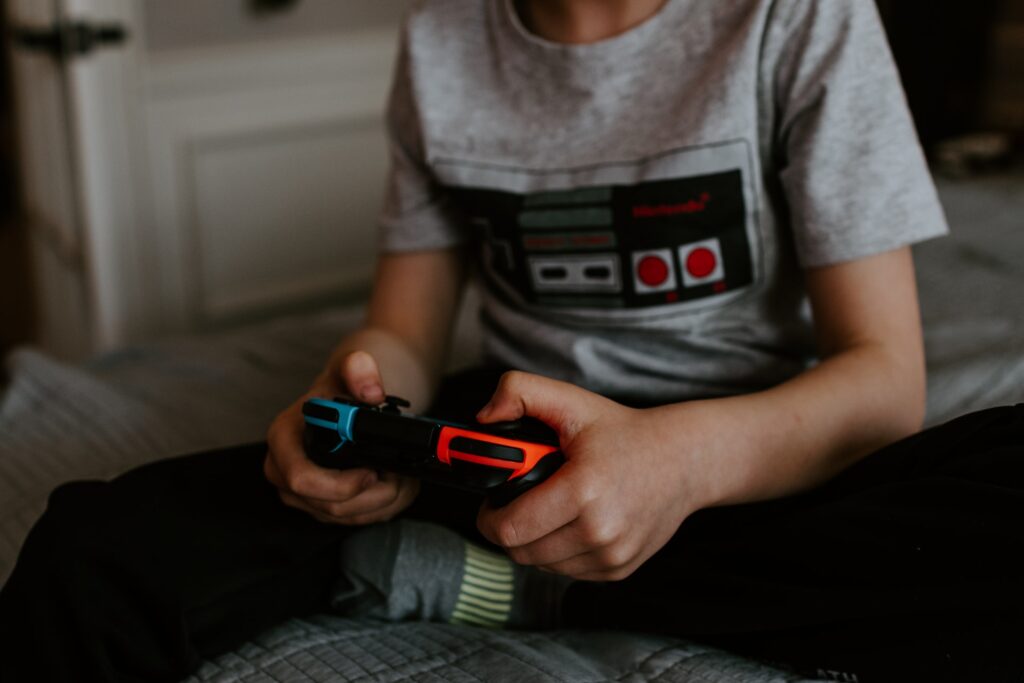Want to make sure your kid’s gaming habits are healthy, but not sure where to start? Spending too many hours can impact your child’s development and get in the way of their daily life.
Well, you’ve come to the right place! We’ll be walking you through some of our top tips for parents helping their kids form better habits around gaming.
Let’s jump right in!
What is gaming addiction?
How much gaming is too much?
What impact does gaming have on your child’s development?
How can you help your child form better habits around gaming?
What is gaming addiction?
A gaming addiction is defined by the World Health Organisation as “a pattern of gaming behavior (“digital-gaming” or “video-gaming”) characterised by impaired control over gaming, increasing priority given to gaming over other activities to the extent that gaming takes precedence over other interests and daily activities, and continuation or escalation of gaming despite the occurrence of negative consequences.”
So when it comes to gaming addiction, the key thing to consider is whether your kid’s gaming habits are negatively affecting their daily routine and other aspects of their life.
How much gaming is too much?
One thing to keep in mind when it comes to figuring out healthy gaming habits for kids, is that there is no magic number of hours that’s considered healthy. How much gaming is too much depends on a lot of other factors and can vary from person to person.
Now, this does make it a little difficult to figure out whether your child’s gaming habits are healthy or not! Dr. K, from Healthy Gamer, recommends that regardless of how many hours your child spends playing video games, the important thing is whether their gaming is actually causing a problem or not.
The key question to ask is: “Does it impair your function? Does it actually get in the way of something that you want to do?” This means your child’s gaming habits may affect their daily routine and affect aspects of their life such as physical or mental health, school life, relationships, or work life.
For example, if your child plays video games all weekend after a busy week of studying and extra-curricular activities, it’s just a way to relax and recharge, and probably isn’t a problem. But if your child’s gaming leads to them avoiding going to school, struggling to get assessments done, or not being able to stop gaming when needed, it might mean they’re gaming too much.
Here are some other signs of too much gaming:
What impact does gaming have on your child’s development?
Too much gaming can impact your child’s development and affect a lot of different areas of their life.
#1: Endorphin Addiction
Playing video games releases a neurotransmitter called dopamine, which makes you feel joy and pleasure.
As a child, the part of the brain that’s responsible for decision making and control is still developing. This means that your child will probably chase after that dopamine rush!
The brain gradually gets used to the release of dopamine, so that the next time your child games, their brain will release even more dopamine for gaming to feel fun. As a result, they may start to find it difficult to enjoy other activities that don’t release as much dopamine as gaming.
Learn more about how gaming impacts our dopamine circuitry here!
#2: Physical Health Impacts
Gaming can also have a big impact on your child’s physical health. They might find themselves experiencing a range of issues such as eye-strain, bad back or neck posture, Repetitive Stress Injuries, and obesity or malnutrition (depending on their eating habits when gaming).
#3: Mental Health Impacts
Since video games are designed to make you feel pleasure and joy, they’re sometimes used as a coping strategy to deal with stress, anxiety, or other mental illness. As a maladaptive coping mechanism, gaming may also worsen these emotions of anxiety or depression.
#4: Learning and Work
Gaming also has a pretty big impact on your child’s academic and professional development.
It does this by essentially compromising your learning circuitry. The amygdala is a part of our brain that becomes active when we experience negative emotions like anger, fear or frustration.
If your child plays video games while the amygdala is active, gaming calms it down, which means gaming essentially suppresses negative emotions.
Now this is important because our amygdala is actually a major part of our learning circuitry. When we experience fear, sadness, pain, or other negative emotion, the amygdala makes connections to the part of our brain that’s responsible for learning, the hippocampus.
This circuitry is how we learn lessons from painful or upsetting experiences! But when children game excessively, it suppresses the amygdala’s function, which makes it harder to create connections to the hippocampus.
So too much gaming can really impact your child’s learning capabilities and their academic or professional development.
How can you help your child form better habits around gaming?
All this talk about how gaming affects your child’s development may sound a little worrying, but it’s not all doom and gloom! We’ve got some easy tips to help you form better habits around your child’s gaming.
#1: Remember that gaming can be good!
When you’re discussing gaming habits, it can be easy to focus on the negative and potentially harmful things about too much gaming. But remember to keep in mind that a healthy amount of gaming for kids can actually be pretty beneficial!
Gaming can be a great way for your child to make social connections and build relationships with like-minded people. When face-to-face gatherings aren’t an option, online gaming is a great alternative for your child to stay in touch with friends and enjoy quality time with them in a virtual environment.
Playing games (within limits of course!) can also help your child de-stress, relax, and have fun. Think about some of your hobbies. Whether it’s watching something on Netflix, spending time with friends and family, or listening to music. Well within moderation, video games can be just as relaxing and enjoyable!
Make sure you keep the positives of gaming in mind while forming healthy gaming habits.
#2: Set realistic limits and gradually reduce gaming time
Make sure you’re helping your child build healthy gaming habits gradually! Small, consistent steps are key when it comes to healthy habits.
You can set realistic boundaries and expectations by including your child in the decision making process, so that you’re both on the same page and they’re more open to accept the limits. Build a rapport with them, give support and information, and listen non-judgmentally.
It’s also a good idea to gradually encourage them to reduce gaming time. This way your child won’t get overwhelmed by a sudden change!
Maybe start by going 1 day with no video games then a couple of weeks later, suggest 2 days of no gaming. Gradually increase this to 5 days or 2 weeks over the span of a few months.
#3: Encourage other hobbies
This is a really important step! A great way to encourage healthy gaming habits is to help your child find hobbies and fun activities other than gaming.
You could maybe suggest:
- Safe, high adrenaline activities or clubs
- Martial Arts
- Learning music, dance, or other creative arts
- Volunteering
- Competitive sports
- Hiking, canoeing, or other nature activities
So there you have it!
We’ve walked you through what a gaming addiction can look like, and some top tips for promoting healthy gaming habits for kids. Good Luck!
If you’re on the hunt for other educational resources for parents, check out some of our other articles below:
- How to Help Your Child Deal With School Stress and Anxiety Throughout the HSC
- Finding Perspective During the HSC
- Reducing Screen Time During Study Hours
- Why You Should Let Your Child Go to Social Events During the HSC
- Maintaining a Healthy Lifestyle During the HSC
Maitreyi Kulkarni is a Content Writer at Art of Smart Education and is currently studying a Bachelor of Media and Communications (Public Relations and Social Media) at Macquarie University. She loves writing just about anything from articles to poetry, and has also had one of her articles published with the ABC. When she’s not writing up a storm, she can be found reading, bingeing sitcoms, or playing the guitar.






